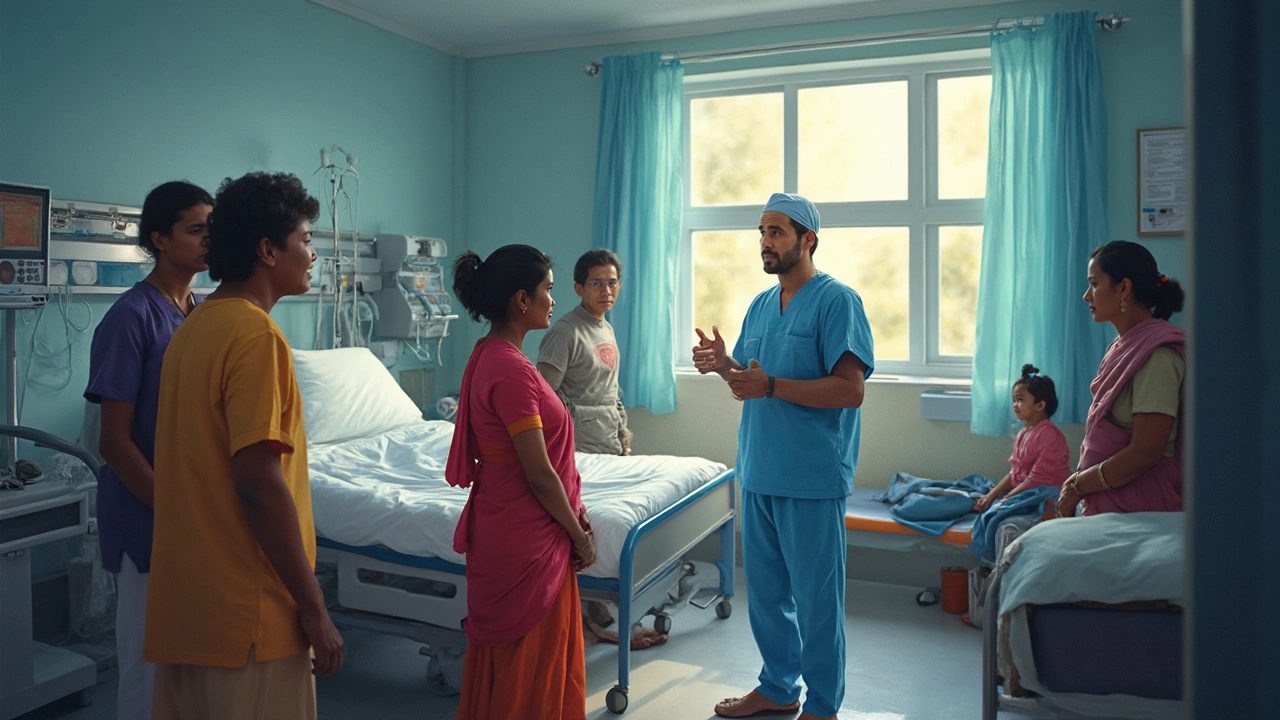Cardiac Care: Guides, Recovery Tips, and Long‑Term Insights
When working with Cardiac Care, the field that focuses on diagnosing, treating, and preventing heart conditions. Also known as heart health management, it bridges surgery, medication, and lifestyle changes to keep the heart running smoothly. Cardiac Care isn’t just a fancy term—it’s the umbrella that holds everything from the operating table to the living room. One of the biggest pieces under that umbrella is Open‑Heart Surgery, a major procedure where surgeons open the chest to repair damaged heart tissue or vessels. This surgery demands precise planning, skilled hands, and a solid post‑op roadmap. After the incision, patients face a cascade of decisions: how soon to sit up, when to walk, and what activity level feels safe. Understanding that cascade helps you move from a scary headline to a manageable daily checklist. The timeline for leaving the hospital, the type of pain medication needed, and the signals that say “you’re healing well” all tie back to the core goal of Cardiac Care: restoring heart function while minimizing risk.
Key Factors Shaping Your Recovery Journey
Another pillar of Hospital Stay, the period after heart surgery when patients are monitored for complications and begin early rehabilitation directly influences how quickly you return to normal life. Studies from leading cardiac centers show that a stay of 4‑7 days is typical for many procedures, but the exact length hinges on factors like age, surgery type, and how well the heart responds to the operation. While you’re under professional eyes, Heart Surgery Recovery, the multi‑stage process that includes wound care, cardiac rehab, and gradual return to activity kicks into gear. Early mobility—sitting up, gentle breathing exercises, and short walks—can cut downtime and lower infection risk. Nutrition also plays a silent but powerful role; protein‑rich meals support tissue repair, and low‑sodium diets keep blood pressure in check. Pair these habits with regular check‑ups and you create a feedback loop where each good day shortens the next’s challenges.
Finally, no discussion of Post‑Operative Pain, the discomfort experienced after heart surgery that can affect breathing, movement, and mood would be complete without a plan for management. Pain isn’t just an unpleasant sensation; it can limit deep breaths, which in turn raises the risk of lung complications. Modern pain protocols blend medication, guided breathing, and gentle stretching to keep you comfortable while you heal. Knowing the signs of “normal” soreness versus warning‑level pain empowers you to ask for help before a problem escalates. As you move beyond the hospital walls, the habits you built—regular monitoring, balanced activity, and proactive pain control—lay the foundation for long‑term heart health. Below, you’ll find a curated list of articles that dig deeper into each of these topics, from exact hospital‑day expectations to real‑world stories of life ten years after open‑heart surgery.

How Long Do You Stay in the Hospital After Open-Heart Surgery? Recovery Times & What to Expect
Get the real facts on how long patients stay in the hospital after open-heart surgery, recovery tips, and what influences hospital stay.
read more
How Long After Open-Heart Surgery Can You Travel by Car?
Wondering if you can jump in a car after open-heart surgery? This article breaks down recovery timelines, safety tips, and facts you won't hear at your standard checkup. You'll get the scoop on what really matters for safe car travel, how to spot red flags, and which travel hacks can make your ride smoother. Skip the guesswork—let's clear up the confusion so you know when it's the right time to hit the road. Plus, learn the signs that it's too soon and when to ask your doctor for more advice.
read more
Open-Heart Surgery: What Really Happens 10 Years Down the Road
Wondering what life looks like a decade after open-heart surgery? This article cuts through confusion and dives into the real long-term changes, including the upsides, challenges, and what you can do to keep your heart strong. Learn about lasting physical and mental effects, helpful lifestyle changes, and real stories from those who’ve hit the 10-year milestone. Get hands-on tips for making the most of your second chance. Your heart’s future isn’t set in stone—a few smart moves can make all the difference.
read more
The Most Failed Heart Surgery: What's Going Wrong?
Heart surgeries are life-saving, yet some procedures, like coronary artery bypass grafting (CABG), surprisingly face a high failure rate. This means it often doesn't deliver the expected health benefits or improvements. Patients might not see the symptom relief they hoped for, or complications may arise. Recognizing factors contributing to these pitfalls helps patients and practitioners better navigate risks.
read more
How Long Does Heart Surgery Take? Get the Details
Heart surgery varies in duration depending on the type and complexity of the procedure. Some surgeries can take a few hours, while more complicated ones might last longer. Factors like the patient's condition, surgical technique, and surgeon's experience play a significant role in the surgery duration. Understanding these details can help patients and their families prepare better for the process. Learn about typical timelines and what to expect during recovery.
read more
Average Hospital Stay After Heart Surgery: What To Expect
Understanding the average hospital stay after heart surgery is crucial for patients and their families. Generally, patients might spend around 4 to 7 days in the hospital, depending on the type of surgery and individual recovery. This article covers different factors affecting hospital stay, tips for a smoother recovery, and what to expect during this period. Knowing these aspects can help ease anxiety and prepare for the road to recovery.
read more
How Rare is Surviving Open Heart Surgery?
Surviving open heart surgery might sound daunting, but it's more common than you might think. Thanks to advances in technology and medical expertise, the success rates have improved dramatically. Patients undergoing this procedure often have a good chance of recovery when they follow pre and post-surgery advice. Understanding the survival details can help reduce anxiety. Here's a look at what you need to know about surviving open heart surgery.
read more
Understanding Recovery After Open-Heart Surgery: A Comprehensive Guide
Open-heart surgery is a daunting medical procedure, and its recovery process can be equally challenging. Although many patients undergo significant recovery, the journey is unique for each individual. This article explores the factors that influence recovery, common hurdles patients face, and practical strategies for achieving optimal healing. By understanding the intricacies of the postoperative journey, patients and caregivers can better navigate the path to heart health.
read more
Understanding the Pain in Heart Surgery Recovery: What to Expect and How to Cope
Heart surgery is a significant medical procedure and its aftermath can be both physically and emotionally challenging. Pain is an inevitable part of the recovery process. This article delves into what patients can expect in terms of pain during and after heart surgery, practical tips for managing this discomfort, and insights into how pain levels vary with different types of heart surgeries. Understanding the pain involved in recovery can help prepare patients and their loved ones for the healing journey ahead.
read more



